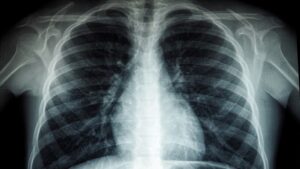[ad_1]
WHAT IS gingiva swelling?
Tooth In case of deterioration of the structure of the flesh, increasing in size, gaining an edematous appearance and swelling, gingival swelling is mentioned.
Edema developing gums; It becomes more prone to damage due to external factors, often bleeding gums may occur or may pave the way for the development of more serious infections.
Tooth Enlargement and swelling in the flesh can occur in various physiological conditions, as well as in the process of various diseases involving teeth and gums.
WHY DOES IT CAUSE SHALLOW?
There are many factors that can play a role in the formation of gum swelling. The first and most common of these is insufficient. oral hygieneis If the teeth are not brushed regularly, plaques consisting of food residues and bacteria form on the tooth surface. These plaques may remain in the inaccessible areas of the teeth due to unbrushed or careless brushing for a long time, and may harden and cause tartar (calculus) formation.
Tartar occurs when bacterial plaques stay on the surface of the teeth for more than a few days and harden, and it is very difficult to clean with methods such as tooth brushing and flossing.
Plaque and tartar are the most common cause of gingivitis and therefore gum swelling.
Pregnancy periodIt is a process in which the probability of gingival swelling increases. Changing hormonal balance during pregnancy can invite gum diseases. At the same time, the increased blood flow in the gums during pregnancy is another factor that facilitates irritations and paves the way for swelling.
Another cause of gum swelling is not enought feedingis Insufficient intake of vitamins B and C along with food can cause tooth and gum disease, leading to swelling of the gums.
Besides all this infections caused by bacteria, fungi and viruses It can also cause swelling and inflammation of the gums. Herpetic gingivostomatitis, a gingivitis caused by the herpes virus, and thrush, which is common in infants, are examples of this. Also untreated dental caries It can also cause regional gingival swelling and abscesses.
WHAT ARE THE SYMPTOMS OF GINGO Swelling?
Swelling of the gums is a very common health It is a problem and manifests itself with similar symptoms in almost every individual. The most common of these are:
– Swelling in any part of the gums or in more than one area,
– Redness of the gums,
– Pain and discomfort,
– Difficulty in eating, speaking and mouth movements,
– Sensitivity to hot and cold foods,
– Inflammation of white color in the area of the swelling,
– Bleeding gums.
The symptoms seen above usually occur within a few days and disappear on their own within a few days. Rarely, it may last longer than a week, in which case antibiotic treatment may be necessary. Therefore, dentists should be consulted for long-lasting gum swelling.
WHAT ARE THE TREATMENT METHODS OF GINGUAL Swelling?
Medical treatment is required for gingival swelling that lasts longer than one or two weeks. In this case, first of all, the problem causing the swelling should be fully diagnosed and drug treatment should be applied for it.
Mouthwashes with various ingredients can be prescribed by the dentist in order to prevent inflammation of the gums and dental plaque.
In addition to mouthwashes in mild swelling and inflammation, some measures that can be taken at home are usually sufficient to cure the disease. Teeth should be brushed 2-3 times a day with a soft toothbrush, and the spaces between the teeth that the brush cannot reach should be cleaned well by using dental floss.
Tongue cleaning should also be done with the help of tongue cleaners. In order to purify the mouth and teeth from bacteria, gargle with salt water can be done intermittently. The use of intense and highly menthol irritating mouthwashes used in the normal routine should be avoided during this period.
In addition, plenty of water should be consumed, alcohol and smoking should be avoided. It should be fed with soft foods that are not too hot or too cold, and the area where the swelling is concerned should be protected as much as possible.
In cases where the pain is severe, cold or hot compresses can be applied to the face. In case of advanced and aggravated inflammation, oral antibiotics may be required. Unconscious use of antibiotics should be avoided without a physician’s recommendation and prescription.
Surgical operations may also be required if the gingivitis has spread to a very large area and cannot be controlled with antibiotics.
In the post-treatment period, due attention should be paid to oral care and hygiene in order to prevent the recurrence of gingival swelling and inflammation.
Follow NTV on social media
[ad_2]
Source link






